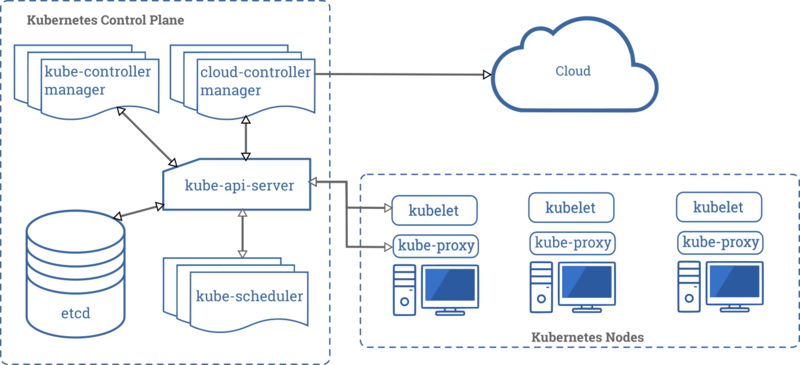Kubernetes: Difference between revisions
From Freephile Wiki
draft |
(No difference)
|
Revision as of 16:51, 4 August 2020
Kubernetes is an open source system for managing containerized applications across multiple hosts. It provides basic mechanisms for deployment, maintenance, and scaling of applications.
Kubernetes Components edit
When you deploy Kubernetes, you get a cluster. The cluster is composed of many components. Here are brief details on some of them.

Kube-apiserver edit
Kube-controller-manager edit
Kubeadm edit
Kubeadm is a component of Kubernetes.
- Kubeadm is a tool built to provide best-practice "fast paths" for creating Kubernetes clusters. It performs the actions necessary to get a minimum viable, secure cluster up and running in a user friendly way. Kubeadm's scope is limited to the local node filesystem and the Kubernetes API, and it is intended to be a composable building block of higher level tools.